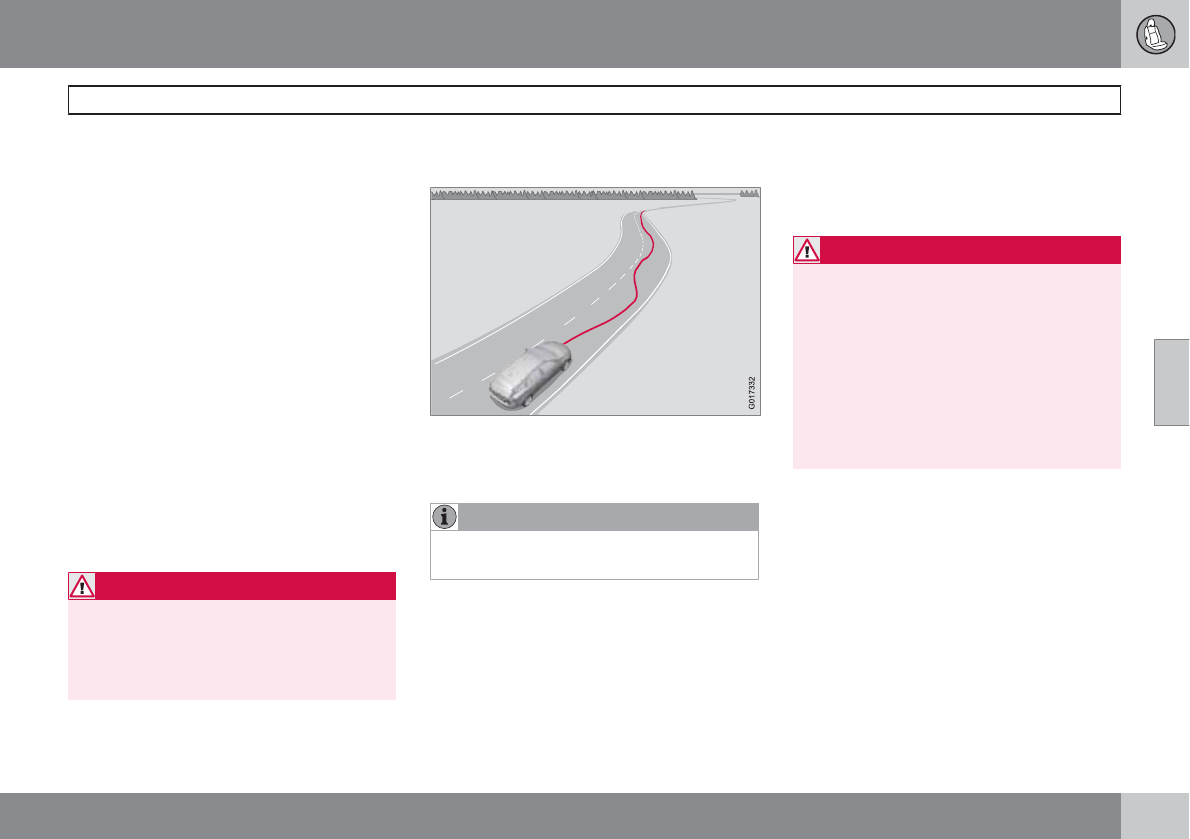
04 Comfort and driving pleasure
Driver Alert System*
04
``
* Option/accessory, for more information, see Introduction.
181
Introduction
The Driver Alert System is designed to help a
driver who may be becoming fatigued or who
is inadvertently leaving the lane.
The Driver Alert System consists of two differ-
ent functions that can be switched on together
or separately.
•
Driver Alert Control (DAC)
•
Lane Departure Warning (LDW), see
page 184
When one or both of the functions has been
switched on, it is in standby mode and is acti-
vated when the vehicle exceeds a speed of
40 mph (65 km/h).
The function deactivates if the vehicle's speed
goes under 37 mph (60 km/h).
Both functions use a camera that is dependent
on the road/lane being clearly marked by pain-
ted lines on each side.
WARNING
The Driver Alert System does not function in
all situations and is designed to be a sup-
plementary aid. It is not, however, intended
to replace the driver’s attention and judge-
ment.
Driver Alert Control (DAC)–
introduction
This function is intended to alert the driver if
his/her driving becomes erratic, such as if the
driver is distracted or fatigued.
NOTE
The camera has certain limitations, see
page 160.
A camera monitors the painted lines marking
the lane in which the vehicle is traveling and
compares the direction of the road with the
driver’s movements of the steering wheel. The
driver is alerted if the vehicle does not follow
the lane smoothly.
DAC is designed to help detect a slowly chang-
ing driving pattern. It is primarily intended to be
used on main roads and is not meant for use in
city traffic.
WARNING
•
DAC is not intended to extend the dura-
tion of driving. Always plan breaks at
regular intervals to help remain alert.
•
In certain cases, fatigue may not affect
the driver’s behavior. In situations of
this type, no warning will be provided.
Therefore, it is important to take breaks
at regular intervals, regardless of
whether or not DAC has given a warn-
ing.
Limitations
In certain situations, DAC may provide warn-
ings even if the driver’s driving pattern has not
become erratic.
•
if the driver is testing the LDW function
•
in strong crosswinds
•
on grooved road surfaces.


















